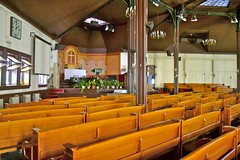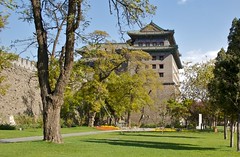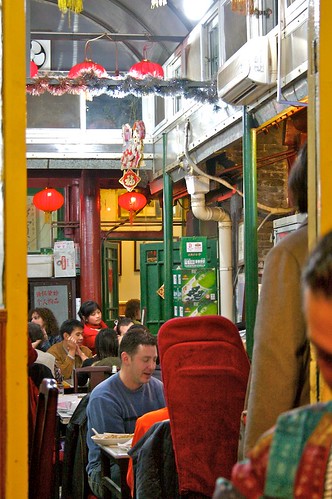It is with dismay that I note that there is great disdain in the police force, media and some major political elements here in Australia for the Judiciary and rule of law. These people are leading us down a path that will allow one party rule as exists in China.
Saturday, September 29, 2007
Police and Courts
It is with dismay that I note that there is great disdain in the police force, media and some major political elements here in Australia for the Judiciary and rule of law. These people are leading us down a path that will allow one party rule as exists in China.
Friday, September 14, 2007
living in a land with no fridges
In Australia we always take note of the live fish in the windows of Chinese restaurants, and some snobby Australians turn their noses up at this tradition. They think it is distasteful. But I found in China very quickly that in fact it is a good sensible way of knowing that you are not going to die of food poisoning. In a country where there is no refrigeration and food is food fresh, rather than pickled or salted, it is vital to know that your food is fresh. There can be no fresher food than that has been recently slaughtered. So any enterprising restaurant owner will go a long way to prove that their food is fresh.
For seafood proving that the food is fresh means showing that it is still alive and looking healthy. For meat, it meant having the meat proudly on display on a counter and letting the patron see the food taken away to be cooked.
Now that there are fridges and more importantly the electricity to run them, this presentation method is much less common.
Tuesday, September 11, 2007
北京
Peking is the name of the city according to Chinese Postal Map Romanization, and the traditional customary name for Beijing in English. The term originated with French missionaries four hundred years ago and corresponds to an older pronunciation predating a subsequent sound change in Mandarin from [kʲ] to [tɕ][citation needed]. ([tɕ] is represented in pinyin as j, as in Beijing), and is still used in some languages (as in Dutch, German, Hungarian, Polish and Spanish).In China, the city has had many names. Between 1368 and 1405, and again from 1928 [1] and 1949, it was known as Beiping (北平; Pinyin: Beiping; Wade-Giles: Pei-p'ing), literally "Northern Peace". On both occasions, the name changed — with the removal of the element meaning "capital" (jing or king, 京) — to reflect the fact the national capital had changed to Nanjing, the first time under the Hongwu Emperor of the Ming Dynasty, and the second time with the Kuomintang (KMT) government of the Republic of China, so that Peking was no longer the capital of China.
The Communist Party of China reverted the name to Beijing (Peking) in 1949 again in part to emphasize that Beijing had returned to its role as China's capital. The government of the Republic of China on Taiwan has never formally recognized the name change, and during the 1950s and 1960s it was common in Taiwan for Beijing to be called Beiping to imply the illegitimacy of the PRC. Today, almost all of Taiwan, including the ROC government, uses Beijing, although some maps of China from Taiwan still use the old name along with pre-1949 political boundaries.
Sunday, September 02, 2007
Back to BeiJing
I had spent the day wandering south through the city with Elliot, one of my co-travelers and room mate for the first few days. We had lunch south of the BeiJing railway station. I ordered hot and sour soup, but while good, it was not the real thing. Instead is was egg flower soup, with chicken and pepper. I also had a bit of difficulty with the difference when ordering between two bowls of soup and one bowl of soup with two bowls. Ah well, that's what happens when your Chinese is not so good.
In the hutongs south of the station we came across a octagonal church. The man there could not explain in English what type of church it was. He wanted 100 元, but at first I did not understand what he wanted 100 of and then decided that was a bit ridiculous. We moved on.
"church" by yewenyi [?]

Next we came to the southern wall. The tower here was the one attacked in the Allied invasion during the boxer revolt. The Chinese are still furious with the amount of damage caused to national artifacts at this time by the invading British. Anyway I am guessing that the tower was rebuilt after the war. Further along the wall is the hole in the city wall made to let the railway line through when the British built a railway line from here to the north.
"tower" by yewenyi [?]

We wandered back to the city and met up with the others. We met in the foyer. Everyone was relaxed and it was a nice group of people. First things were about getting to know each other and to understand the organization. We went out for our first dinner, PeiKing duck in a hutong restaurant.
"restaurant" by yewenyi [?]
